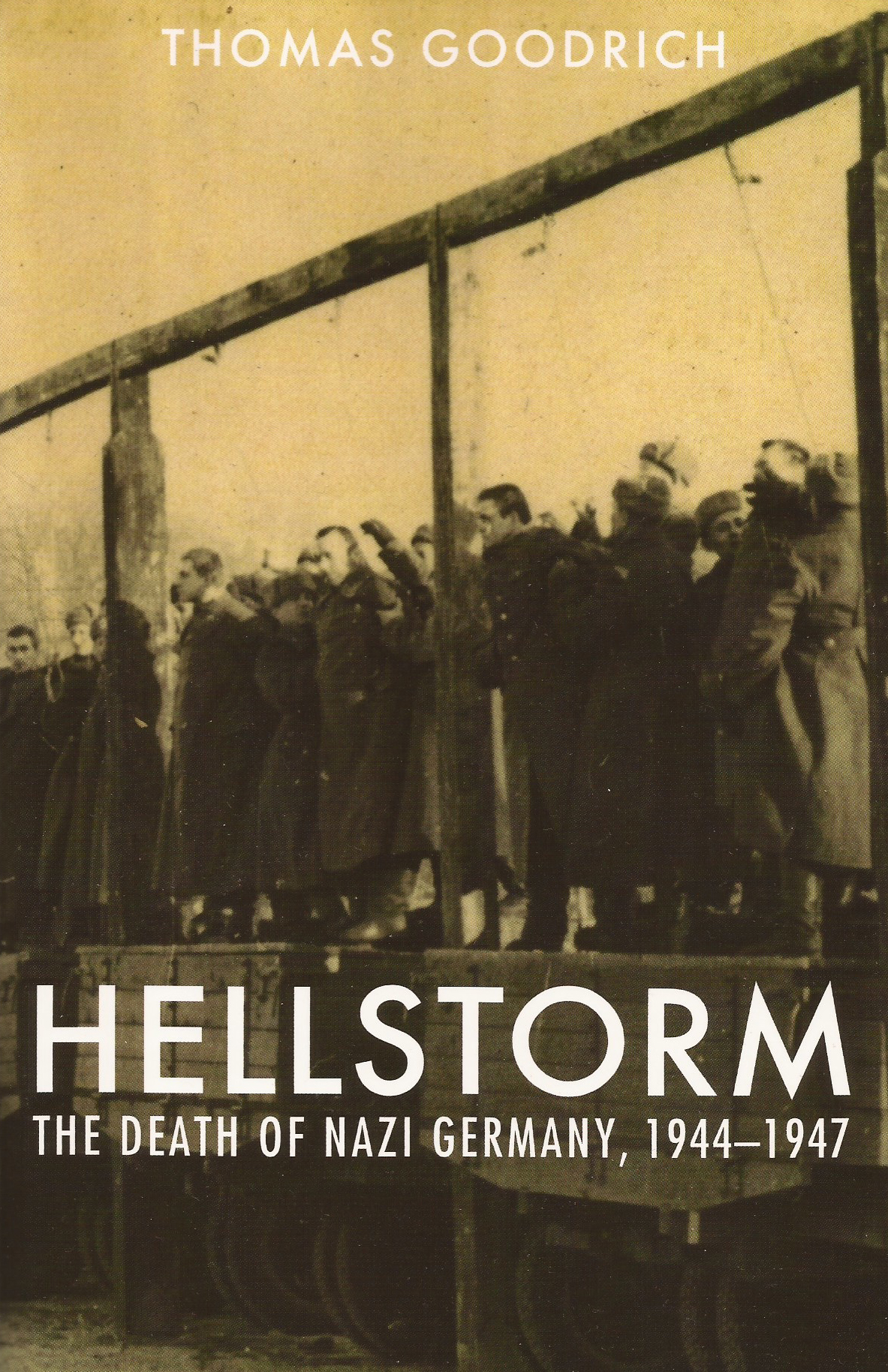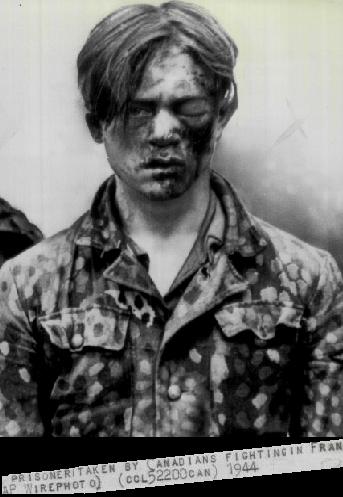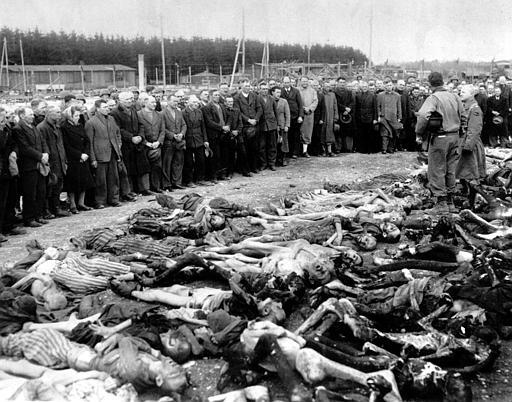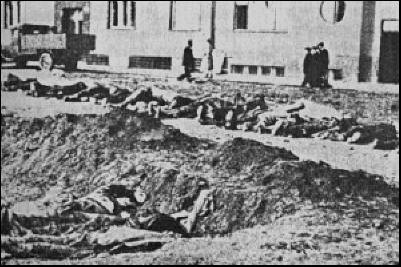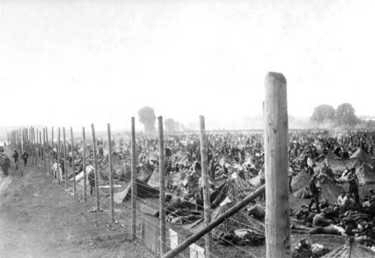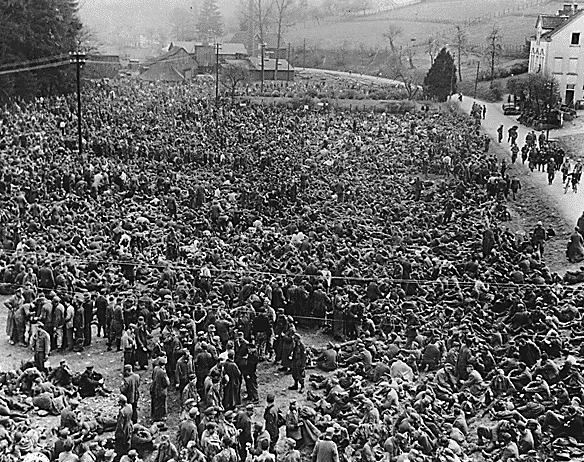Further to my previous post.
As der Schwerter has just translated to German an article by Edward S. May (“Baron Bodissey”) that explains beautifully why it is almost certain that economic Armageddon is around the corner.
Below “Chump Change,” the complete 2009 article by May that originally appeared at Gates of Vienna. Presently the situation in the US is far more compromised thanks to the ongoing (suicidal) efforts of chairman Ben Bernanke:

When I was seven years old I took up coin collecting as a hobby. Back in those days there were still a lot of interesting coins in circulation: the buffalo nickel, the Mercury dime, the Liberty Walking half dollar, and—if you were patient and went through enough rolls of coins—the occasional Indian head penny or “V” nickel.
The most exciting coin of all, however, was the silver dollar. The 1921 “Peace” dollar would do, but the Morgan dollar was preferable—it had a serious-looking 19th century design, and was the very same dollar that filled those heavy payroll bags heisted by stagecoach robbers in Westerns. It was a nice hefty piece of real American history, and it could fill the palm of a small boy’s hand.
Up until my tenth birthday my allowance was fifty cents a week, which I received in the form of a biweekly dollar bill. During my silver dollar craze I would take that bill down to the bank and ask for a silver dollar in exchange for it. The tellers all knew me, and would oblige me by picking through their selection of silver dollars until they found a date I didn’t have.
I was able to indulge myself in this manner because most of the dollar bills in circulation back then were still silver certificates.
The bank had no choice: under its charter, it was required by law to “pay the bearer on demand” a dollar in official United States silver coinage for every silver certificate presented to it.
No one has the same option today. Today all the paper money in circulation consists of Federal Reserve notes, which are not redeemable for anything in particular. You can go to the bank and exchange your dollar bill for four quarters, but those are no longer the shiny silver discs that rang so delightfully on the marble counter at the teller’s window. Nowadays the dimes, quarters, and half dollars are all “Johnson slugs”, the ugly nickel-copper sandwiches that were introduced in 1964 when silver coinage was abolished and the silver certificates were withdrawn from circulation. 1968 was the last year in which the law required that any paper dollar be redeemable in silver.
♣
The abolition of silver coinage was the culmination of an extended process that took most of a century to complete: the disconnection of American paper currency from any fixed standard of value as represented by precious metals.
By the time the Johnson slugs appeared, the abolition of the silver coinage was an absolute necessity. The price of silver had been allowed to float, and because of inflation the silver in a dollar coin was worth more than $1.25. Entrepreneurs could make a tidy profit buying up silver dollars in bulk, melting them down, and selling them as bullion to silver traders. The old coins had to go, which meant that the silver certificates had to go, too.
From then on the federal government was not required to give you anything for your dollar bill. If you had one, you could go out and buy something that other people were willing to give you in exchange for your piece of paper. But the Treasury was obliged to provide nothing of value in return for that piece of paper except the “full faith and credit of the United States government”, which was worth a lot more in 1964 than it is today.
In the 19th century, the United States adhered first to a “bi-metallic” standard—both silver and gold coinage—and then the gold standard. Under the pressure of the Great Depression, FDR initiated a gradual slide away from gold and into a silver standard for the paper currency, although the Treasury and the Federal Reserve adhered to the gold standard until 1971.
Since then the official currency of the United States has been anchored by nothing more than global confidence in the soundness of the dollar. As long as everybody believed in the same fantasy, then the system could operate. The dollars were printed, credit was extended, the financial markets functioned, and business enterprises were profitable. People went to work and got paid and bought stuff.
They also borrowed money and took out mortgages, which brings us to the mess we’re in today.
♣
Today’s system of commercial and consumer credit is made possible by the practice of fractional reserve banking. Until the late 18th or early 19th century, banks did not lend out their cash reserves of depositors’ money. The advent of fractional reserve banking made it legal for a bank to lend out a portion of its deposits, and required it to keep only a fraction of those deposits—in modern times, typically 20%—as an actual cash reserve.
This means that when Joe Consumer deposits $1000 into his bank account, the bank can lend up to $800 of it and keep $200 of the deposit as a fractional reserve, maintaining the loan on its books as an asset. At this point the initial $1000 in cash has morphed into $1800 in cash assets and credit—in effect, $800 worth of money has been created.
When the borrower deposits the $800 into another bank, that bank in turn can loan out $640. And so the process continues, forming a geometric progression of assets which cannot exceed $5000 (500% of the original deposit), $4000 of that in loans listed as assets on the books of the respective banks.
This practice seems bizarre and imprudent at first glance, but it was absolutely essential during the expansion of our industrial economies. Industrialization created wealth where none existed before, but without a way to extend the money supply to match the added wealth, the capitalization of industry would have lagged, and growth would have been much slower. Fractional reserve lending allowed credit to be extended to industrial entrepreneurs, and as long as loans were made prudently and repaid on time, and banks retained their depositors’ confidence, the system functioned well.
Maintaining a gold or silver standard imposed a natural limit on the inflation of the money supply via fractional reserve banking. As long as banks met their capitalization requirements and observed the rules for fractional reserves, the money supply could never expand past the implied mathematical limit.
During times of economic contraction the system sometimes foundered. Then there would be a run on the banks, and some banks would fail. Although the system always righted itself eventually, businesses were ruined and individuals impoverished in the process, so that the political pressure for a system of government controls was irresistible.
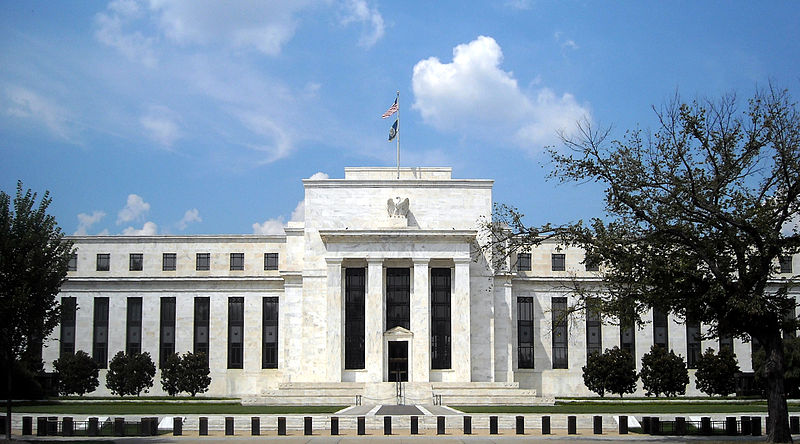
Right: At a distance looks like the White House but it is the “Fed” headquarters (Eccles Building)
Thus was the Federal Reserve born in 1913. The Fed is a consortium of private banks linked closely to the government, and functions more or less as a central bank would in many countries. Its job is to control the money supply by setting interest rates for government lending. By stabilizing swings in the money supply, the Fed’s mission is to prevent bank runs. It’s not always successful: witness the recent run on Washington Mutual and its subsequent collapse—the largest bank failure in history.
♣
The current gargantuan federal government, so far beyond the size and scope of what the Founding Fathers originally envisaged, owes its origins to the Civil War and Abraham Lincoln. Using military means, Lincoln demonstrated that the government in Washington was the absolute master of the several States.
But the bloated bureaucracy didn’t really take off until Woodrow Wilson invoked his presidential authority during World War I to create federal powers and functions which had never existed before, and which just happened to fit into his Progressive framework.
Not all of these powers were scrapped after 1918, and Franklin Delano Roosevelt took everything a step further when he created the New Deal to fight the Great Depression—once again, an excuse for massive Progressive intervention—and then World War II.
By 1945 the federal government was simply “too big to fail”, and all the layers of emergency powers that had accreted over the previous thirty years became permanent bureaucratic institutions. Once initiated, a new federal program was virtually never abandoned. No cabinet office has ever been abolished—new ones can be created, but they cannot be destroyed; they may only persist and grow.
Decade after decade the government has continued to expand, adding agency upon agency and bureau upon bureau. It has sprawled out across the District of Columbia into satellite fiefdoms in Maryland and Northern Virginia and created nests of regional offices across the rest of the nation. Whenever a congressman or senator perceives an important “constituent need”, a new federal function is created and funded, and becomes a permanent fixture in the Washington ecosystem.
Needless to say, all of this is very expensive. For the first thirty years or so of the federal explosion, increased taxes were sufficient to fund the pet projects and Progressive fantasies of the federal mandarins. But then the post-war boom leveled off, even as the Great Society was mandating a thicker layer of lard on top of the government pudding.
Increased taxation was not good enough. Unfortunately for the feds, raising taxes much further had become politically impossible, yet the internal logic of government expansion required that more money be found.
That’s where the Johnson slugs came in.
♣
The uncoupling of the money supply from any reserve of precious metals did not automatically doom the country to inflation, indebtedness, profligacy, and ruin.
If the individual functionaries within the system did their jobs properly—if they acted with probity, prudence, fiduciary integrity, honesty, and in the interests of the people they purportedly served—the fractional reserve system could have continued indefinitely.
But there are too many perverse incentives built into a banking system that is not pegged to any external reserve of actual tangible value. By adding new rules, augmenting existing procedures, and tinkering with the arcana of accounting terminology, new wealth could be created where it didn’t exist before. The Treasury could keep issuing bonds, and as long as the price of milk and shoes didn’t rise too much, why then, everything must be fine, mustn’t it?
But it wasn’t fine. Decade after decade of deficit financing created the infamous national debt, which kept growing and growing. But, once again, as long as productivity increased and the economy kept on expanding, inflation could be kept at bay. The national debt, huge as it was, might theoretically be paid off—someday.
Unfortunately, during the last two decades or so, productivity hasn’t really been as high as it seemed. Our national wealth is now denominated at least partially in assets that are over-valued, with real estate as a notable example. Those California house prices—a million dollars for a tiny bungalow on a postage-stamp lot—might have looked good on the asset side of a balance sheet, but they weren’t real money.
That value was conjured out of thin air by cynical or short-sighted people who gamed the system to their own advantage—quite legally, in most cases. But the wealth thus generated was illusory, and could disappear as easily it was created—which it is even now in the process of doing.
The final stroke which broke the banking system—and caused it to collapse years or decades earlier than it would have otherwise—was meddling by the federal government for political reasons.
Meddling was irresistible. And, without a gold standard to enforce fiscal restraint, it was inevitable. Money could always be created out of nothing, so the federal government created it and ordered its agencies to force the private sector to do certain things with it, things that might otherwise be considered foolish or imprudent.
In the case of the subprime mortgage fiasco—the most visible and notorious example—the federal government created government-protected lending institutions and through them forced banks to loan money to homebuyers who would not otherwise have qualified for the loans, and who could not reasonably be expected to pay them back.

Beginning in the 1970s, and continuing until the whole house of cards collapsed last year, the government used Fannie Mae and Freddie Mac—two quasi-government lending institutions which were not bound by normal market constraints—to pump untold billions of dollars into the housing market. Mortgages were issued to people who were poor, or had vaginas, or spoke English badly, or had sufficient melanin in their skin—because they deserved them. Never mind whether they could afford them: it was unfair for them not to own houses, and so the mortgages were issued, backed by the full faith and credit of the United States government.
The rules kept being eased, the system got more corrupt, more and more money flowed through more and more hands, creating an ever-increasing supply of perverse incentives for bureaucrats and businesses to lie, to manipulate the rules, and to line their own pockets.
In the process the demand for real estate increased, driving the price of housing far beyond what it would otherwise be, thus creating the real estate “boom”—which was actually a bubble, and which has now officially popped.
During this period baroque new rules emerged to facilitate the issuing of additional debt. Exotic new financial derivatives were designed. Accounting rules for valuing assets were loosened. Bond-rating agencies were corrupted by their dependence on the institutions whose debt they rated. The securitization of debt removed the traded derivatives ever farther from anything of tangible value. Debt instruments were used as collateral on new debt, which was in turn used as collateral on yet more debt, until the money supply became so attenuated and rarefied that it had almost no connection with anything real. The entire elaborate financial structure of the country’s banking system was spun out of the purest speculative gossamer.
And at every level of the process somebody took a cut, so everyone worked very hard to increase the size of the pie.
♣
In order to issue all those worthless mortgages, the ultimate guarantor—Uncle Sam—had to create the money by borrowing it himself. T-bills were issued, and buyers snapped them up.
Many of the customers for US Treasury paper were foreign governments, especially in Asia. The Chinese accumulated a large surplus of dollars, and recycled them by buying up more dollar-denominated debt. As long as China kept producing cheap products and exporting them to us, the process could continue. Our manufacturing capacity was diminished, and our money flowed out of the country to buy Chinese goods. But they kept loaning it back to us so that we could continue to fund the federal behemoth and its profligate habits.
The entire system depends on confidence in the dollar—as long as foreign countries continue to believe that real value lies behind the dollar, and that the American economy is strong enough to withstand this level of debt, they will continue to loan money to us, and pump liquidity into the system.
But confidence in the dollar won’t last. It can’t, because all those dollars in circulation, held in reserves in central banks all over the world, are not backed up by enough collateral. The last estimate I read—which was over a month ago, and real estate prices have presumably dropped even further since then—placed the number of dollars in circulation and held in reserves all over the world as thirteen times the amount of tangible assets in the U.S. financial institutions that back them up. That is, if all the holders of dollars across the globe decided to exchange them at the same time, the currency would have to be inflated at least 1,300% to redeem them.
With the addition of the recent stimulus package, American debt now exceeds the entire collective wealth of every man, woman, and child in the United States.
And this debt is almost entirely collateralized by confidence in the dollar. There’s nothing else backing up our currency.
♣
The national debt is even more alarming if our unfunded liabilities are taken into consideration. One of the ways that successive presidential administrations kept deficits to a theoretically manageable level was by putting the Social Security Trust Fund “off-budget”—i.e., outside of its fiscal calculations. The “Trust Fund”, of course, is a joke—there’s nothing in it but IOUs. The FICA money that is withheld from your paycheck and contributed by your employer disappears instantly into the insatiable maw of federal spending, leaving only a promise that your retirement fund will be available for you when you are ready to collect it. Your future Social Security, like all things federal, depends solely on the “full faith and credit of the United States Government”, a commodity whose value is dropping precipitously.
One recent estimate puts the unfunded liability of Social Security and Medicare—the money which the system will be statutorily required to provide for today’s citizens at some point in the future—at more than $100 trillion. And that’s just for the two biggest federal entitlements—add to them federal pensions, veterans’ benefits, and state, local, and private pensions, and the amount of unfunded liability is unimaginably huge.
All those hundreds of trillions of dollars are mandated by law and must someday be paid out. Yet the money is not there now—where will it come from?
And “someday” is drawing rapidly closer. Much of the unfunded liability will begin to come into play in the next few years as my generation, the Boomers, begins to retire and claim all its benefits. That’s why political leaders of both parties are so keen to get Pedro and Ahmed into the country—they’re looking for somebody, anybody, who will go to work and pay the FICA and income tax necessary to support the Beautiful People as they shuffle off into assisted living.
But it’s not going to work. Even if all the immigrants were skilled and ready to work, even if mass immigration were not doomed to destroy the culture and civil society that holds this entire Potemkin village together, even if the multicultural dream could be fully realized—even if everything else were ideal, the system would not be able to handle the load. The conclusion is inescapable: the persistence of our current political arrangements is fiscally and actuarially impossible.
♣
This is the broad context in which the current financial crisis has emerged.
The system is going to fail. Failure is unavoidable. The big questions are:
1. How soon will it fail?
2. What form will that failure take?
3. How much civil unrest, violence, deprivation, and destruction will accompany the changeover to whatever new system emerges?
The broad outlines of what is to come are already visible. The banking systems of the West are heading for insolvency, and no amount of bailout money is going to save all the major banks. Bailing them out will only serve to delay the catastrophe and make it worse when it finally arrives. Real value to match the newly-created bailout money does not exist, and at some point the market will mark everything down to its true worth, destroying roughly 90% of the system’s wealth in the process.
One of the first symptoms of the collapse will be a run on the dollar. When confidence finally erodes past a certain point, speculators will start to unload their dollars en masse, and the U.S. government will have to choose between inflating the currency or defaulting on its obligations.
The United States is at the epicenter of the banking crisis, but the European currencies are feeling the pinch first. With the Austrian banks facing the default of Eastern European debt, the euro may be in trouble, and sterling is also widely rumored to be near collapse. The dollar is maintaining its value relative to these currencies (and the yen), but all of them are in the same boat. It won’t be long before investors start unloading their reserves of currency and taking refuge in gold, silver, platinum, and other non-perishable commodities whose value is expected to outlast whatever unpleasantness lies ahead.
After that the major Western nations will experience an unprecedented fiscal and monetary crisis. Mass insolvency, bank failure, an inability to meet entitlement payments, and the suspension of normal commercial activity will be the result.
The modern global economy depends on mass consumption by the wealthy Western democracies of goods produced by the Third World and purchased by savings borrowed from the Third World. This part of the system is already in retreat—consumption in the West has dropped dramatically, Chinese exports have collapsed, and the Chinese are signaling their unwillingness to loan us more money unless we can guarantee that we won’t inflate our currency to pay off our debts. What sane person would believe such a guarantee, even if the Treasury were so foolish as to offer it? The inflation is coming, and the current system will grind to a halt.
We are, in a word, screwed.
♣
All of this will not just happen. None of the unfortunate consequences will occur in a vacuum, and there will be reactions and counter-reactions on the part of governments and the public, which will make the system chaotic and unpredictable.
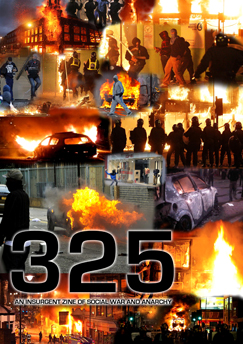 Governments will continue to intervene to “fix” the market, and by doing so will generally make the problems worse. Riots, civil wars, insurrection, and revolution will be likely if the maintenance dose of government cash is withdrawn from recipients in the major welfare states. Many other negative consequences are probable, but no one knows when, where, and how much.
Governments will continue to intervene to “fix” the market, and by doing so will generally make the problems worse. Riots, civil wars, insurrection, and revolution will be likely if the maintenance dose of government cash is withdrawn from recipients in the major welfare states. Many other negative consequences are probable, but no one knows when, where, and how much.
Even the wisest and most skilled political leadership would find it difficult to intervene in a way that would mitigate the worst effects. At some point the market will have to realistically revalue the system’s assets, and the results will be painful. The consequences can only be postponed, and thus made more severe; they cannot be avoided.
Unfortunately, wise and skilled political leadership is in short supply all across the West. Our social democracies—with their welfare systems and ideologically uniform media—do not reward risk-takers and visionaries. Cynical time-servers, technocrats, obedient functionaries, and corrupt fixers tend to rise to the top. This is the cohort who will be leading the charge with broom-handle and dustbin lid during the coming debacle.
So far Congress and the Obama administration seem determined to do the worst possible things, economically speaking. Pumping more debt into the system, bailing out inefficient and unprofitable private companies, increasing pork-barrel spending and patronage, nationalizing financial institutions, rewarding corrupt and incompetent administrators, raising taxes, increasing regulation… How much more perverse can they get?
Giving bankruptcy judges the right to “adjust” interest rates on individual mortgages will serve only to distort the credit markets further and make the crash much worse when it finally arrives. Appropriating vast quantities of public funds to force a restructuring of private mortgages is senseless when the market value of the mortgaged real estate is half the face value of those loans, and dropping fast.
Barack Obama has assumed the role of King Canute in the current farce, sitting on the foreshore with his hand raised, ordering the tide to stop. A pathetic and futile gesture, but one that he and all the other leaders must inevitably make. They have no other solutions.
“Tide, I command thee: turn back!”
♣
There are a few possible positive aspects of the current mess. As the crisis matures, supra-national institutions will fail and become irrelevant before nation-states do. Individual nations will reclaim their authority and sovereignty in an attempt to take care of their own.
Here in the United States, in the face of new unfunded mandates, trillions of dollars of federal largesse with strings attached, and volumes of new federal regulations, the several States have suddenly recalled the Tenth Amendment and are invoking their own sovereignty. This is all to the good, because for the last sixty years or so the federal government has extended its effective reach by dangling money before the states and making them dance for it. As the money disappears, the dance will come to an end. Without a bottomless cash drawer, the federal government is a pathetic weakling, and most power will eventually devolve to the states.
Another possible spinoff of the coming financial collapse is that the problem of Islam will solve itself. One of the consequences of the depression is that the demand for oil has dropped dramatically, and the price will be low for years. Not only will the sheikhs lose much of their income, but many of them are heavily leveraged and live on the margin, with their assets tied up in the Western financial markets. Like everyone else, they will see most of their wealth disappear.
And, unlike many other countries, the oil-dependent states of the Middle East have nothing else to fall back on. When the oil money disappears, that’s it. The entire population—millions of people on the Arabian peninsula and in Iran—subsists on state oil revenues, directly or indirectly.
The effects of this are already becoming evident. Hundreds of thousands of guest-workers in Saudi Arabia and the emirates are being sent home to Malaysia, Indonesia, Nepal, Bangladesh, and the Philippines. These latter countries will thus experience the unfortunate secondary effects of the collapse of oil prices. Given that most of the rest of their economy depends on the manufacture of cheap consumer goods for the West, they will be in serious trouble.
If this process is severe and goes on long enough, rioting, civil insurrection, and revolution may well give way to epidemics and actual mass starvation all across the long crescent of Islam’s bloody borders, from Marrakech to Mindanao.
♣
All of the above is pure speculation.
I’m a rank amateur when it comes to economics and finance. Over the past three months I have read and digested a huge volume of information in an attempt to understand the catastrophe that is unfolding in slow motion around us.
I don’t know if my prognostications are correct. Unfortunately, no one else can predict what’s going to happen, either. The current situation is unprecedented. It is inherently unstable, chaotic, and unpredictable. Don’t believe anyone who says he knows what will happen next year. No one does.
Preliminary indications are that the global economy has actually been a planet-wide Ponzi scheme since at least the beginning of the Industrial Revolution. Like any other Ponzi scheme, it depended on a constant infusion of new suckers. As long as the world’s population was expanding, and the efficiency of industrial production was increasing, the fiscal bubble could continue to inflate.
But the dream is over, and the bill is coming due. The bubble has popped. The scheme is collapsing. The entire finance system will soon become like 1997 Albania writ large.
When the fever has run its course, a new system will emerge. Eventually the market will reassert itself, and production and consumption will resume.
But how much trouble and sorrow lies ahead of us is hard to predict.

Given that the economy of the United States will take the biggest hit—and has the farthest to fall—the era of American hegemony will almost certainly come to an end within the next decade. On balance this will be a salutary thing for the rest of the world. Europe will learn to deal with Russia and Iran on its own. Third World dictatorships will have to extort protection money from a different client. The Japanese will rapidly discover the value of missile defense and a strong military. All the fires that have been prevented or contained by American military power will rage unchecked until their human fuel is fully consumed.
And America will persist in some form, perhaps in several pieces, or as a loose confederation that will warm the heart of Jefferson Davis’ ghost.
Or perhaps we will continue as a single nation, much poorer and unable to project power abroad, but ruled by a despotic central government wielding a citizens’ army of multicultural block wardens to keep the citizenry in line—a continent-wide Cuba from sea to shining sea.
Or perhaps some other currently unimaginable form of government and civil society will emerge.
The only thing that’s certain is that the system cannot continue for much longer in its present form. The laws of economics—which are nothing more than a mathematical model describing what must happen—tell us that a collapse of some sort is unavoidable.
You will know changes soon.



